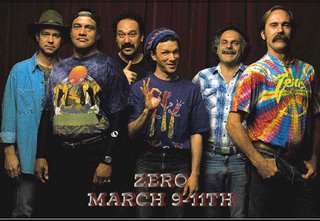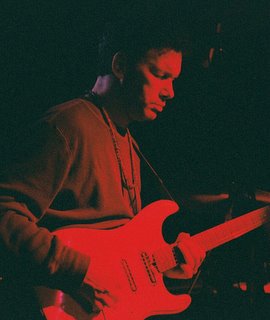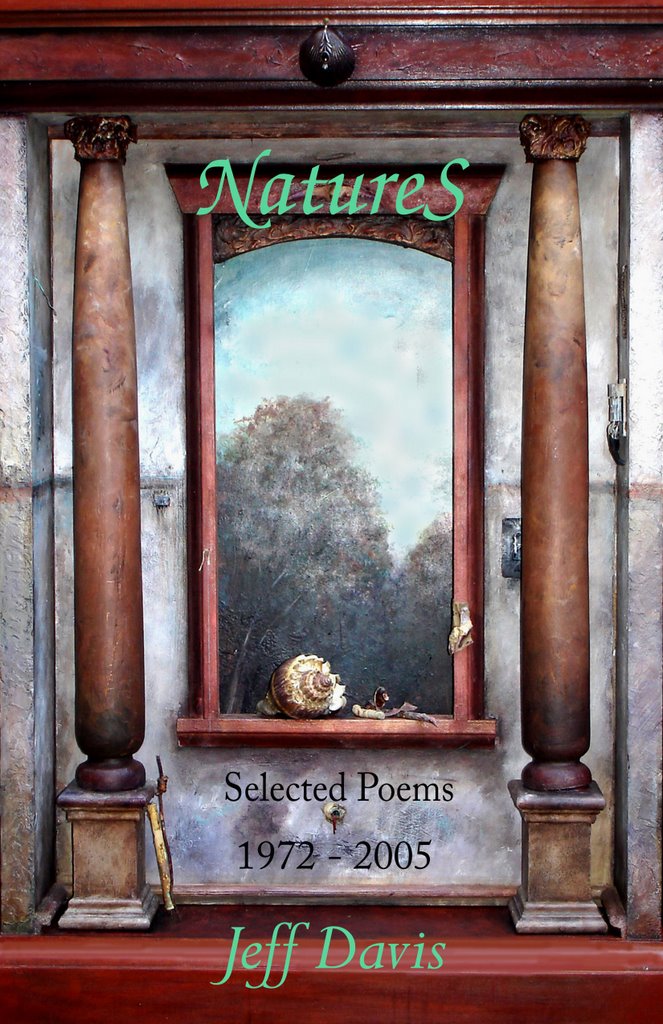Sometimes you get THE show ...

Sometimes not. While I enjoyed Steve Kimock Crazy Engine's session at Asheville's Orange Peel on November 12th, and the friends with whom I went, both of whom had seen Kimock in various bands before, had a good time, not everyone was ecstatic. Long-time fan David Riddle, for instance, decidedly was not:
Musically, this was probably the low point in my Kimock career. That's not to say that it was bad...because it didn't feel bad, per se, but there was pretty much no emotion whatsoever. It was as unimpressive a band performance as I've seen in a long time. There was just no energy at all. Kinda weird really...but whatever, better luck next time right?The relative shortness of show was weird for me, too, since every Kimock show I've ever been to, aside from festival sets, has raged on for a good hour longer.
...
... there were absolutely no IT moments. Regardless of my past shows and interest in Steve's career, the one thing that has always been a constant is some moment during the show where he takes you on a trip that melts the flesh, and has you floating in a sea of sonic bliss. This show didn't get close. That's a first for me personally...
...
The weirdest part of the night was probably whenever Steve took the mic and said, "Well...normally this is the time of the night where we say goodnight and walk offstage." They'd played 8 songs and had been on stage for roughly 75 minutes. That was a true "what the fuck" moment for everyone there. Trevor and John were standing up and looked to be thinking setbreak...then looked entirely confused. Steve then said something like, "we're just gonna play a little more and then walk off". Somehow they stretched it til maybe 10:45 and got two hours out of the set, but the whole scene after that was just weird....and I don't think that's subjectivity either...it was palpable confusion. The venue's curfew was 1am and people were just starting to wake up. We were on the street looking for something to do by 11pm.
So maybe the band had an off-night. Bands do that. That's one reason that, back in the day, even I, not a tour rat, would try to catch a couple of shows when the Dead were nearby; and the Dead, during the later stages of their odyssey, made it easy to catch multiple shows by playing two and three night stands in major cities. You were almost certain to get a few IT moments, as Dave calls them, out of the run.
And the Kimock band seems to have taken things up a notch the next few shows, and got rave reviews on the Kimock list for their performances in Charlotte and Atlanta. I'll keep an eye out for them on the Live Music Archive; so far there's no recording there of the Charlotte show, and the Atlanta recording is missing the second set. Oh, well. Hopefully another will turn up.
And, for now, I'll just wait for next time.
~~~~~~~~~~~~~~~~~~~~~~~
Photo: Steve Kimock Crazy Engine at the Orange Peel. L to R: Steve Kimock, John Morgan Kimock, Trevor Exter, Melvin Seals.
Labels: Grateful Dead, music, Orange Peel, Steve Kimock



